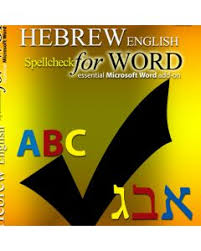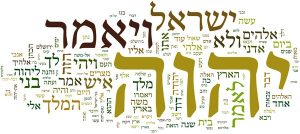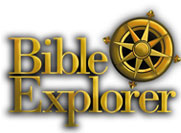
Wisdom-Trek / Creating a Legacy
Welcome to Day 826 of our Wisdom-Trek, and thank you for joining me.
I am Guthrie Chamberlain, Your Guide to Wisdom
Spellchecking the Bible – Wisdom Wednesday

Thank you for joining us for our five days per week wisdom and legacy building podcast. Today is Day 826 of our trek, and it is Wisdom Wednesday. The past several weeks on Wednesday, we have been focusing on interpreting current events through a Biblical worldview.
To establish a Biblical worldview, it is important that you also have a proper understanding of God’s word. Especially in our western cultures, we do not fully understand the scriptures from the mindset and culture of the authors. In order to help us all have a better understanding of God’s word, I would like to invest the next several weeks reviewing a series of essays from one of today’s most prominent Hebrew Scholars Dr. Micheal S. Heiser, which he has compiled into a book titled I Dare You Not to Bore Me with the Bible.
We are broadcasting from our studio at The Big House in Marietta, Ohio. I write a lot for both work and the scripts for this podcast. At some point, I would like to write a novel series that is a Christian space-based theme. While my spelling has improved considerably over the years with all of this writing, I would be lost without a good grammar and spell checker.
The grammar checker does have various options depending on the type of writing and the context. This also plays a factor in a book we usually don’t consider needing a grammar or spell check, which is the Bible. With the numerous translations available today, it may be prudent to consider. So the topic of our essay today is…
Spellchecking the Bible

The words of the original Biblical text cannot always be read with certainty. Genesis [49:10] is a famous example. These three translations show the differences.
|
NASB |
ESV | NLT |
| “The scepter shall not depart from Judah, Nor the ruler’s staff from between his feet, until Shiloh comes, And to him shall be the obedience of the peoples.” | “The scepter shall not depart from Judah, nor the ruler’s staff from between his feet, until tribute comes to him; and to him shall be the obedience of the peoples.” | “The scepter will not depart from Judah, nor the ruler’s staff from his descendants, until the coming of the one to whom it belongs, the one whom all nations will honor.” |
Three translators arrived at different conclusions because the Hebrew text itself is ambiguous. The problem is one word made up of four Hebrew letters which is translated (shiyloh).
The NASB takes these four letters as spelling “Shiloh,” the place where the Ark of the Covenant was kept during the days of the Judges, Samuel, and David. As it is written, this is how the word should be pronounced, but “Shiloh” is not spelled this way anywhere else in the Hebrew Bible. The odd spelling has led many translators to suspect that “Shiloh” is not the correct translation.
Another problem with translating this word as “Shiloh” is that the Septuagint—the Greek translation of the Hebrew Bible produced a few centuries before Christ, which is often quoted by the New Testament writers—has a different rendering. The Septuagint literally reads, “until that which is stored away for him comes.” The Hebrew text used by the Septuagint translator did not read (shiyloh).

The Septuagint translator saw one of two things. The four consonants in our problem word could have been divided into two words: (shay loh). That option would result in “until tribute comes—is brought to him.” The ESV reflects this option.
One text of the Septuagint translator may have had three consonants instead of four. His Hebrew Bible may have read (shiloh). Although this is a frequent spelling for “Shiloh” in the Hebrew Bible, the Septuagint translator did not regard the word as the place name.
Instead, he took the word as a combination of two other words: (“that which”) followed by (“to him” or “to whom”). The result is typically translated, “that which to whom it belongs.” When the verb (“he/it comes”) is added, we get something akin to the NLT: “until the coming of the one to whom it belongs.”
| Traditional Hebrew Text | Hebrew Behind Septuagint: Option One | Hebrew Behind Septuagint: Option Two |
| (shiyloh) | (shay loh) | (she loh) |
| “until Shiloh comes” (NASB) | “until tribute comes to him” (ESV) | “until the coming of the one to whom it belongs” (NLT) |

Both of the possible Septuagint textual readings have a messianic flavor. They speak of a person—specifically, a descendant of Judah—coming to reign or having tribute brought to him as king. While translators don’t have to guess about messianic prophecy in dozens of other places, Genesis [49:10] has kept them guessing for centuries. I realize this week has been a bit more technical in nature. Please check out the journal for today at wisdom-trek.com.
Next Wisdom Wednesday, we will look at Dr. Heiser’s next essay titled, “Why Circumcision.” I believe you will find this another interesting topic to consider as we build our Biblical worldview.
Tomorrow we will continue with our 3-minute wisdom nugget that will provide you with a bit of wisdom that, if followed, will allow you to grow healthier, wealthier, and wiser each day. So encourage your friends and family to join us and then come along with us tomorrow for another day of our Wisdom-Trek, Creating a Legacy.

That will finish our trek for today. If you would like to listen to any of our past 825 treks or read the Wisdom Journal, they are available at Wisdom-Trek.com. You can also subscribe to iTunes or Google Play so that each day’s trek will be downloaded automatically.
Thank you so much for allowing me to be your guide, mentor, and most of all your friend as I serve you through the Wisdom-Trek podcast and journal.
As we take this trek together, let us always:
- Live Abundantly (Fully)
- Love Unconditionally
- Listen Intentionally
- Learn Continuously
- Lend to others Generously
- Lead with Integrity
- Leave a Living Legacy Each Day
I am Guthrie Chamberlain reminding you to Keep Moving Forward, Enjoy Your Journey, and Create a Great Day Everyday! See you tomorrow!
Leave a Reply